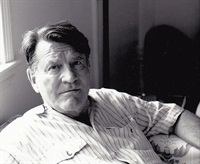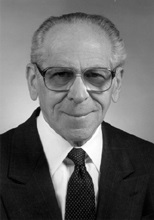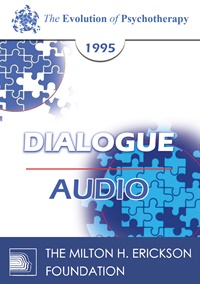EP95 Dialogue 12 - The Process of Change - Jay Haley, MA; Thomas Szasz, MD
- Average Rating:
- Not yet rated
- Topic Areas:
- Dialogues | Psychotherapy | Therapeutic Process
- Categories:
- Evolution of Psychotherapy | Evolution of Psychotherapy 1995 | Pioneers in Couples and Family Therapy
- Faculty:
- Jay Haley, MA | Thomas Szasz, MD
- Course Levels:
- Master Degree or Higher in Health-Related Field
- Duration:
- 56:54
- Format:
- Audio Only
- Original Program Date:
- Dec 16, 1995
- License:
- Never Expires.
Description
Description: Defining change in therapy proves complex, with debate over whether it should be therapist-guided or client-directed. Topics include the role of coercion, the influence of state licensing, and the contrast between educational and therapeutic models. The discussion highlights how these issues impact clinical practice and professional identity.
Moderated by Brent Geary.
Educational Objectives:
- Given a topic, to become aware of the differing approaches to psychotherapy, and to identify the strengths and weaknesses in each approach.
*Sessions may be edited for content and to preserve confidentiality*
Credits
Handouts
| Timestamped Transcript (971.3 KB) | 23 Pages | Available after Purchase |
| Ericksonian Learning Snapshot (248.5 KB) | 2 Pages | Available after Purchase |
Faculty

Jay Haley, MA Related Seminars and Products
Jay Haley (M.A., 1953, Stanford University) was Director of Family Therapy Institute of Washington, D.C. He was one of the leading exponents of the strategic/interpersonal approach to family therapy. Haley served as Director of the Family Experiment Project at the Mental Research Institute and as Director of Family Therapy Research at the Philadelphia Child Guidance Clinic. He has authoered seven books, co-authored two and edited five. Additionally, he has more than 40 contributions to professional journals and books. Haley is the former editor of Family Process, and the first recipient of the Lifetime Achievement Award of The Milton H. Erickson Foundation.

Thomas Szasz, MD Related Seminars and Products
Thomas S. Szasz, (M.D., University of Cincinnati, 1944) was Professor of Psychiatry at the State University of New York, Upstate Medical Center in Syracuse. He was recipient of numerous awards, including the Humanist fo the Year Award from the American Humanist Association and the Distinguished Service Award from teh American Institute for Public Service. He has received a number of honorary doctorates and lectureships, and served on the editorial board or as consulting editor for ten journals.
Szasz has authored approximately 400 articles, book chapters, reviews, letters to the editor and columns. He has written 19 books.


